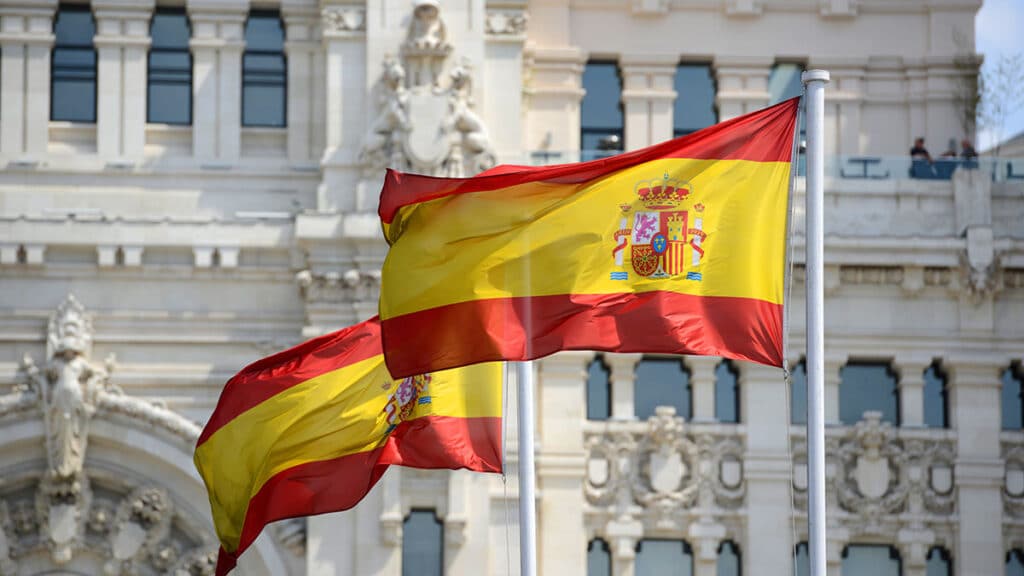
The National Day of Spain is October 12. It commemorates the day in 1492 when the first Columbus expedition claimed the Americas for Spain.
The exact location is lost to the mists of time, but is believed to be one of the islands that today is the Bahamas. Rodrigo de Triana, a sailor on the expedition, was the first to see land. Columbus claimed the discovery to earn a reward, but he lied. It all began with a lie. There is nothing honorable about Columbus. He was so abusive of the Indigenous Peoples of the Americas that his Spanish sponsors called him back to Spain, jailed and tried him. He made Spain rich, so they let him go, but never allowed him to have power again.
This claim led to the Spanish Empire which in the Americas lasted until the Spanish-American War of 1898. That was the beginning of the American Empire.
The day is controversial in the former colonies. We cherish our Spanish cultural heritage, but being colonized is an apocalyptic experience that included the erasure of the rich cultural heritage of the Americas. The Spanish Empire made Spain rich ~ at the cost of Indigenous American, African Diaspora and Asian blood, and the destabilization of the First Nations of the Americas and many African countries. The political-economic-religious-social system that was left behind is dysfunctional. It’s designed so governments and the church can steal everything. We are still struggling to decolonize ourselves, so it is complicated.
National Day of Spain in New York City
New York City’s big celebrations of the National Day of Spain include:
- Hispanic Heritage Month
- Hispanic Day Parade
- Indigenous Peoples Day
- Indigenous Peoples Day NYC Powwow
- Columbus Day Parade
- National Indigenous Peoples of the Americas Parade
Many New York cultural institutions host Hispanic-oriented events during Hispanic Heritage Month.
Día de la Hispanidad
This day is a national holiday in Spain. Madrid usually celebrates with a military parade led by the king and prime minister. The celebration started in 1935.
The Colonial Era is behind us. Today people around the world take great pride in their Hispanic heritage. We still send our children to learn flamenco as a living expression of our Hispanic roots. Interestingly, flamenco itself is an expression of the diversity of Spain and its culture.
Today the country with the most Spanish speakers is Mexico. The second most Spanish speakers, over 50 million, live in the United States. We don’t consider ourselves a Hispanic country, but we are. The western two thirds of the United States was once New Spain and then Mexico.
There is a Renaissance in Spanish Culture
Saturday, October 12, 2019 ~ Renowned Spanish director Pedro Almodóvar’s latest film Pain and Glory (Dolor y Gloria) is a semi-autobiographical story of three phases in his life. The film flows back and forth through his childhood in rural Spain, the peak of his success in the 1980s, and the present where he faces creative block and the question of what should a successful old man do next in life?
The story is also a loose allegory of modern Spain. There was the isolation and backwardness of the Franco years (filled with the violence of Catholic Nationalism), followed by the success of the 1980s after the dictator fell, and a period of malaise after the Financial Crisis of 2008.
But Spain is reaching out into the world again. The young flamenco pop singer Rosalía was one of the first signs. She broke out in 2018. Her youthful exuberance is filled with flamenco tradition that also breaks flamenco tradition. Purists don’t like her. She is from Catalonia, not Andalusía. The flamenco community in Spain is very traditional. But Rosalía got the world singing and dancing flamenco again. Almodóvar found his muse again. Spain is conquering the world once more. This time not with force, but with passion and creativity.
¡Viva España!
